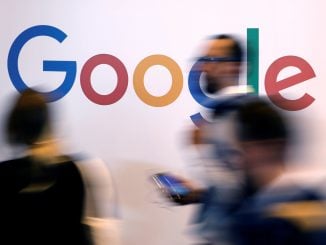Google CEO Sundar Pichai testified briefly last Friday at the federal financial conspiracy trial surrounding buzz-to-bust startup Ozy Media, countering founder Carlos Watson’s alleged claims that the search giant once sought to buy Ozy.
Google did consider hiring Watson for a high-level news executive job in 2021 and putting $25 million into Ozy in something of a tradeoff for luring him away, Pichai told jurors.
“Mr. Watson was a critical part of Ozy Media, and we were considering making an investment in the company to make the transition easier,” he explained.
But “did you ever offer to purchase Ozy Media for $600 million?” prosecutor Dylan Stern asked.
“No,” replied Pichai, who heads Google and parent Alphabet Inc.
He said he had been introduced to Watson at a conference and then in a video interview for a possible Google job interacting with news outlets. Neither the hire nor the $25 million investment ultimately happened.
According to prosecutors, Watson later told another prospective investor that Pichai had extended a nine-figure offer to buy Ozy. The Mountain View, California-based company produced TV programs, podcasts and a music-and-ideas festival before falling apart in fall 2021 amid questions about whether it had flagrantly misrepresented its audience reach, deals and finances.
In a press release, the U.S. Attorney’s Office of the Eastern District of New York added, “Watson and his co-conspirators continued to attempt to induce the bank to lend Ozy several million dollars based on misrepresentations and omissions, including regarding the expected revenue from the second season of the Ozy television show. During these discussions, the bank requested to speak to a representative of the cable network. To conceal the lies about Ozy’s relationship with the cable network and the status and terms of their agreement, Rao, with Watson’s approval, created a fake email address in the name of an actual executive of the cable network, which Rao used to impersonate the executive and communicate with the bank about the potential loan.”
Ozy Media lawyer Shannon Frison said in an emailed statement Friday that it’s “unequivocally untrue” that Watson told anyone that Google had made a $600 million offer.
“He never had such a conversation with Google and never told any person that he did,” Frison said.
Watson and Ozy Media have pleaded not guilty to charges including conspiracy to commit fraud. He has said that he built a robust and real company, didn’t con anyone and is being singled out for prosecution when he made, at most, entrepreneurial “mistakes.”
Defense lawyers have blamed any misrepresentations on Ozy co-founder Samir Rao, saying he is falsely implicating Watson in hopes of avoiding prison himself. Rao pleaded guilty to identity theft and conspiring to commit fraud, and he is awaiting sentencing.
He testified earlier in the trial that his “moral compass” got scrambled by ambition, desperation to keep the company going and “Carlos’ deep belief that failure was not an option and we had to do whatever it took.”
Among other deceit, Rao infamously posed as a YouTube executive — even using a phone app to disguise his voice — in order to champion Ozy to Goldman Sachs investment bankers on a February 2021 call.
“It was one of the most disturbing calls that I have ever been on in my career,” Goldman executive Hillel Moerman testified Friday, calling the episode “a surreal experience.”
Rao testified that he did the phone trick to back up a false claim that YouTube was paying for Watson’s eponymous talk show. Rao said Watson was with him during the call, texting him about what to say: “I am a big fan of Carlos, Samir and the show,” read one text that was shown to jurors.
Defense lawyer Ronald Sullivan Jr. has said Watson came into the room during the call, realized “a live train wreck” was unfolding and tried to get Rao to end the conversation.
On the other end, Moerman thought the putative YouTube exec’s voice seemed obviously “off,” among other clues that made the Goldman bankers suspicious, he recalled Friday.
One of his colleagues soon called the actual executive at YouTube, which is owned by Alphabet. The ruse unraveled. So did the potential for a Goldman investment.
“We had been lied to,” Moerman explained to the Brooklyn federal court jury.
Goldman Sachs did keep advertising with Ozy after the episode, according to Rao’s testimony.
Watson told Goldman and Ozy’s board that Rao had suffered a mental health crisis. Rao told jurors he was taking antidepressants at the time but wasn’t having a psychiatric break.


